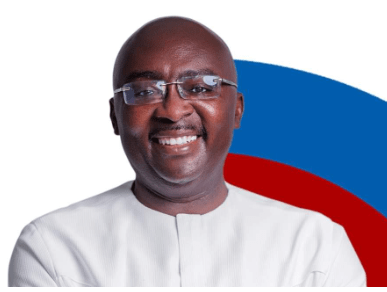‘Economic whizkid’, ‘Mr. Digitalisation’—these are some of the epithets given to Vice President, Dr. Mahamudu Bawumia, a leader who has served Mother Ghana in multiple capacities and demonstrated hard work for all to see.
Yet, perhaps his greatest act of service, one which should earn him the moniker ‘Dr. Salam’ (Peace), is his concession speech following the 2024 presidential elections.
Elections are often characterised by heightened tensions and this was no exception, yet, the Vice President’s graceful acknowledgment of defeat has rekindled the hope of many who were disillusioned with our party politics.
With a simple but profound gesture, he congratulated his opponent, president-elect, John Dramani Mahama, and committed to ensuring a peaceful transition of power.
This act is a testament to his statesmanship and also a cornerstone in cementing Ghana’s reputation as a beacon of peace and democracy in Africa.
Elections in Africa, and indeed globally, are high-stakes affairs, with winners and losers often at loggerheads.
In Ghana, with our proud history of democratic transitions, the stakes were especially high in 2024.
Despite this, Dr. Bawumia’s concession speech demonstrated political maturity and a commitment to national unity. He acknowledged, “The people of Ghana have spoken, and we must respect their decision,” sending a powerful message to his supporters and the international community.
This singular act may have averted potential unrest and bolstered Ghana’s position as a stable democracy. By placing the country’s interests above personal ambition, Dr. Bawumia reminded all Ghanaians that the essence of leadership is service, not power. His actions have laid the groundwork for reconciliation, fostering an environment where dialogue and collaboration can thrive.
Beyond its immediate political implications, the flag bearer of the New Patriotic Party (NPP) concession speech carries profound economic significance. The economy, like many others, has faced turbulent times, with inflation, debt burdens, and unemployment challenging policymakers. In such a fragile economic environment, political instability could have had catastrophic consequences.
Investors, both local and foreign, often look to political stability as a key factor in their decision-making processes. Dr. Bawumia’s statesmanship reassures investors that Ghana remains a safe haven for business, even in the face of political change.
By prioritising peace, he has helped preserve Ghana’s reputation as a reliable investment destination—a critical factor in the nation’s economic recovery efforts.
Moreover, peaceful transitions of power send a strong signal to development partners and multilateral organisations. They highlight a country’s resilience and readiness to undertake reforms and attract aid and partnerships. Dr. Bawumia’s actions, therefore, transcend symbolism; they set the stage for concrete economic benefits that could help Ghana weather its current challenges.
The Vice President’s concession speech is a masterclass in leadership and a lesson for other African nations where contested elections often lead to prolonged instability. By showing grace in defeat, he has set a standard that other leaders in the region can emulate.
His actions also resonate with the principles of democracy and governance. True leadership, as Dr. Bawumia demonstrated, is not about clinging to power but about respecting the will of the people and ensuring the nation’s progress above all else.
While Bawumia’s tenure as Vice President will be remembered for his focus on digitalization, his concession speech may well be his defining legacy. As ‘Dr. Salam’, he has demonstrated that peace is the foundation of progress, and his actions will undoubtedly shape how future generations view leadership in Ghana.
Dr. Bawumia’s concession speech serves as a reminder that the nation’s strength lies in its unity, and its future depends on its leaders’ ability to prioriti$e peace and progress. By choosing the path of reconciliation, Dr. Bawumia has not only earned the respect of Ghanaians but has also solidified Ghana’s place as a shining example of democracy in Africa. This is the kind of leadership that ensures a nation’s enduring success.










